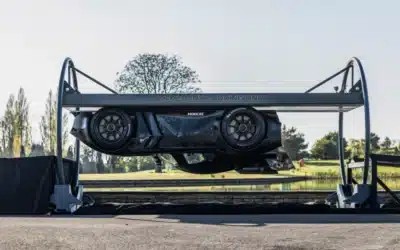
It used to be so simple buying a car. But now the choices seem endless! And one of the first you face is whether to go for a traditional petrol or diesel car, a hybrid or a full electric vehicle. Let’s hope that you are saying no to a gas-guzzler! So we’re here to help you decide whether it’s time to take the plunge with a hybrid or full EV.
Each option offers specific advantages based on your driving habits, budget, and environmental goals. Both types of vehicles have seen substantial advancements in recent years, offering stylish and high-performance options.
What are Hybrid Vehicles?
Hybrid vehicles combine a traditional internal combustion engine with an electric motor. This dual-drive system enhances fuel efficiency and reduces emissions compared to conventional vehicles. Hybrids are available in various configurations, with the most popular being:
Full Hybrids: These can run on the engine, the electric motor, or both simultaneously. Notable examples include the Toyota Prius or the Honda Accord Hybrid.
Plug-in Hybrids (PHEV): These vehicles come with larger batteries that can be recharged using an external power source, allowing a certain distance to be covered solely on electric power before the petrol engine kicks in. Popular models include the Toyota RAV4 PHEV, the BYD SONG Plus or the Toyota Prius Prime.
What are Electric Vehicles?
Electric vehicles rely entirely on electric power, using large batteries to drive one or more electric motors. Unlike hybrids, EVs do not have an internal combustion engine.
Comparing Hybrids and EVs
Environmental Impact: Both hybrids and EVs are more eco-friendly than traditional petrol-powered cars. However, EVs have a clear advantage in reducing greenhouse gas emissions, especially if they are charged using renewable energy. Hybrids still rely partly on petrol, contributing to emissions but at a lower rate.
Fuel Efficiency and Range: Hybrids generally offer superior fuel efficiency compared to traditional cars, with impressive consumption figures. Plug-in hybrids can run purely on electric power for short distances, ideal for daily commutes, but still depend on petrol for longer journeys. Modern EVs, meanwhile, benefit from cheaper electricity compared to petrol and offer ever-increasing ranges, with some current models exceeding 400 km per charge and new generations offering over 500km. Nevertheless, range anxiety—worrying about running out of battery before finding a charging station—remains a consideration, though it is diminishing as charging infrastructure improves.
Cost and Incentives: EVs typically come with higher upfront costs due to expensive battery technology although these are coming down. However, incentives often can offset these costs. Hybrids are usually cheaper initially, and their fuel savings can balance the cost difference over time.
Convenience: Hybrids offer greater convenience for those who travel long distances frequently or lack easy access to charging stations, as they can be refuelled at any petrol station. EV owners need to consider home charging options and the availability of public charging stations, though these networks are rapidly expanding.
Maintenance: EVs generally require less maintenance than hybrids because they have fewer moving parts and do not need oil changes. Hybrids, while still offering maintenance benefits over traditional vehicles, require more upkeep due to their dual-drive systems.
Performance: EVs don’t have traditional gear boxes, which gives them added acceleration and torque. Even small EVs are quicker off the mark than many high-powered ICE vehicles. They are also quieter and smoother as there is no roar from an engine. With the new generation of EV tyres, road noise is also reduced even more.

The BYD SONG PLUS is the world’s best-selling hybrid car.
Key Considerations
Driving Distance and Frequency of Long Trips: If your driving involves mostly short distances and you have access to reliable charging infrastructure, an EV might be ideal. However, for frequent long trips or in areas with limited charging stations, a hybrid may be more practical.
Budget: EVs often come with higher initial costs, sometimes mitigated by incentives but with lower maintenance expenses due to fewer moving parts. Electricity is also often cheaper than fuelling with petrol or diesel. Hybrids are cheaper to buy initially and may offer better fuel savings than conventional cars but require more maintenance than EVs.
Environmental Priorities: For those prioritising minimal carbon footprint, EVs are preferable since they produce no exhaust emissions. Hybrids reduce emissions compared to petrol cars but still rely on fossil fuels. Check out our recent article about how EVs are much lower carbon than ICE vehicles.
Charging Infrastructure: The convenience of owning an EV is significantly enhanced if you can install a home charger or have easy access to public chargers. In areas with limited charging infrastructure, hybrids might be the better choice.
Driving Experience: EVs offer instant torque and smooth acceleration thanks to electric motors, providing a responsive and enjoyable driving experience. Hybrids balance electric and petrol power, offering good fuel efficiency and driving comfort, but may not match the smooth performance of dedicated EVs.
So, the choice between a hybrid and an electric vehicle depends on various factors including environmental impact, costs, maintenance, convenience, and driving experience. As a prospective buyer you should carefully consider these aspects to determine which option aligns best with your needs and circumstances.











